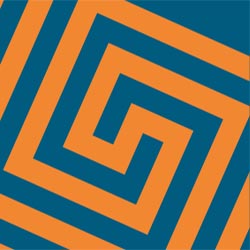A History of Western Society: Printed Page 746
A History of Western Society, Value Edition: Printed Page 752

PRIMARY SOURCE 22.4
Max Weber Critiques Industrial Capitalism
When prominent U.S. sociologist Talcott Parsons first translated Max Weber’s 1905 classic work The Protestant Ethic and the “Spirit” of Capitalism and Other Writings in 1930, his use of the term “iron cage” to describe capitalist rationality was seared into the consciousness of generations of English-speaking academics. In this more up-to-date and accurate translation, “shell as hard as steel” replaces “iron cage.” Weber’s scathing critique of capitalist rationality remains the same.
 A constituent part of the capitalist spirit, and not only this but of modern culture, namely, the rational conduct of life on the foundation of the idea of the calling, was born (as this essay shows) out of the spirit of Christian asceticism. One only needs to reread [Benjamin] Franklin’s tract (quoted at the beginning of this essay) to see that the essential elements of the attitude which is there termed the “spirit of capitalism” are precisely those which we found to be the content of Puritan asceticism of the calling, only without the religious foundation, which had already ceased to exist at the time of Franklin….
A constituent part of the capitalist spirit, and not only this but of modern culture, namely, the rational conduct of life on the foundation of the idea of the calling, was born (as this essay shows) out of the spirit of Christian asceticism. One only needs to reread [Benjamin] Franklin’s tract (quoted at the beginning of this essay) to see that the essential elements of the attitude which is there termed the “spirit of capitalism” are precisely those which we found to be the content of Puritan asceticism of the calling, only without the religious foundation, which had already ceased to exist at the time of Franklin….
The Puritans wanted to be men of the calling — we, on the other hand, must be. For when asceticism moved out of the monastic cells and into working life, and began to dominate innerworldly morality, it helped to build that mighty cosmos of the modern economic order (which is bound to the technical and economic conditions of mechanical and machine production). Today this mighty cosmos determines, with overwhelming coercion, the style of life not only of those directly involved in business but of every individual who is born into this mechanism, and may well continue to do so until the day that the last ton of fossil fuel has been consumed.
In Baxter’s* view, concern for outward possessions should sit lightly on the shoulders of his saints “like a thin cloak which can be thrown off at any time.” But fate decreed that the cloak should become a shell as hard as steel [or “iron cage” in the earlier translation]. As asceticism began to change the world and endeavored to exercise its influence over it, the outward goods of this world gained increasing and finally inescapable power over men, as never before in history. Today its spirit has fled from this shell — whether for all time, who knows? Certainly, victorious capitalism has no further need for this support now that it rests on the foundation of the machine. Even the optimistic mood of its laughing heir, the Enlightenment, seems destined to fade away, and the idea of the “duty in a calling” haunts our lives like the ghost of once-held religious beliefs….
No one yet knows who will live in that shell in the future. Perhaps new prophets will emerge, or powerful old ideas and ideals will be reborn at the end of this monstrous development. Or perhaps — if neither of these occurs — “Chinese” [or mechanized] ossification, dressed up with a kind of desperate self-importance, will set in. Then, however, it might truly be said of the “last men” in this cultural development: “specialists without spirit, hedonists without a heart, these nonentities imagine they have attained a stage of humankind never before reached.”†
*Richard Baxter (1615–1691) was a Puritan minister famous for advocating toleration in the Church of England.
†Though Weber offered no citation, the ideas expressed in this quote are usually attributed to the German philosopher Friedrich Nietzsche.
Source: The Protestant Ethic and the “Spirit” of Capitalism and Other Writings, by Max Weber, translated by Peter Baehr and Gordon C. Wells, translation copyright © 2002 by Peter Baehr and Gordon C. Wells. Used by permission of Penguin, a division of Penguin Group (USA) Inc.
EVALUATE THE EVIDENCE
Question
Why is Weber pessimistic about the possibility of escaping from the hardened “shell” or the “iron cage” of “outward goods”? How, according to Weber, has human consciousness changed to accommodate the growth of industrial capitalism?
Question
Does Weber’s argument about the rise of capitalism challenge Marx’s explanation of the same?